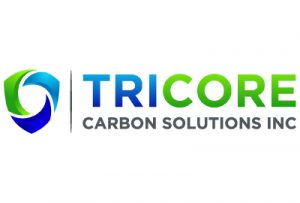Since TriCore Carbon Solutions (TriCore) won the best New Clean Technology award at the Global Petroleum Show, parent company Carbon Credit Solutions Inc. (CCSI) CEO Ed Alfke and President Alastair Handley have expanded their planet positive tech solutions in the oil & gas sector, acquiring Cap-Op Energy (Cap-Op).
The result? Today, CCSI provides an end-to-end solution for oil and gas companies to become compliant with new provincial and federal emissions regulations – for free.
Around the world, industry leaders in the oil and gas sector are actively reducing methane emissions under initiatives like the Oil and Gas Climate Initiative and the Climate and Clean Air Coalition’s Oil and Gas Methane Partnership. Here in Alberta companies are already taking action to reduce methane emissions to become compliant with federal and provincial regulations requiring upstream oil and gas facilities to reduce or eliminate methane emissions by January 1, 2023.
With its new acquisitions in hand, CCSI has created a program that gives producers an exceptional opportunity to get compliant at virtually no cost and possibly create a new, short-term revenue stream in the process.
New compliance regulations require Alberta producers to fulfill 3 key steps:
- Report Inventory: By the end of 2019, producers must inventory and report all equipment on upstream oil and gas sites that currently emit methane emissions.
- Develop a Plan: Based on the inventory, by June 2020, companies must create a Methane Retrofit & Replacement Compliance Plan (MRRCP). The MRRCP should detail the replacement of all field equipment to become compliant.
- Implement: The MRRCP must be fully executed by December 31, 2022.
CCSI, Cap-Op and TriCore’s knowledge and technologies work together to solve all three problems and leverage Alberta’s carbon market to pay for it. It’s an end-to-end solution that any oil and gas producer can take advantage of.
Cap-Op’s proprietary software – the Methane Abatement Project Platform (MAPP) – has two parts:
- MAPP Inventory: An equipment and asset field application allowing field staff to collect data on-site and share it with corporate personnel in real-time.
- MAPP Campaign: Decision-making software that integrates the data sets to help operators find the most economic energy efficiency and emissions reduction projects.
In other words, the software efficiently creates both a detailed inventory and an MRRCP in one fell swoop, and the software is free to the oil and gas sector.
On the implementation front, TriCore provides industry-leading solar powered mechanical injection pumps to accelerate reductions. The new equipment reduces a company’s wellsite methane emissions in compliance with the government’s 2023 limits.
MAPP software blended with CCSI’s carbon credit generation software and TriCore’s clean tech help companies get compliant with no capital outlay. How? CCSI also offers a financing solution to finance the replacement of old equipment and have the carbon market pay for it.
Using the new equipment reduces methane emissions that are converted into carbon credits, which in turn pay down the lease. “In most cases, the credits pay for 100% of the equipment,” Alfke says. “It’s the chance to become compliant with methane regulations for free.”
The pay-down typically happens in less than 24 months, but the equipment has a useful life of 15 years. “It’s a real opportunity for oil and gas companies to benefit from leveraging Alberta’s carbon markets, and to do something good for the planet at the same time.”
In addition to the benefits of early compliance, reducing methane emissions, generating carbon credits and the pay-off of equipment, producers obtain other benefits. “It reduces chemical costs and creates efficiencies that help the overall operation of the wellhead,” Alfke says.
There are yet other potential wins for early adopters, according to Handley. “Under our program, if the client acts quickly, it’s possible they don’t just pay off their equipment, but actually generate a revenue stream from the credits before the deadline too.”
Carbon credits are generated because companies voluntarily reduce their methane emissions with the new equipment in advance of the government-set deadline of January 1, 2023. But it’s a limited time offer, as they say: carbon credits can no longer be generated under the current scheme after Jan 1, 2023.
Today the CCSI companies have retrofitted or replaced over 12,000 methane emitting pneumatic devices, good for over 1 million tonnes per year of GHG reductions.
CCSI’s clients range from large, multi-national oil and gas companies to the smallest Alberta-based producers. “Any oil and gas producer in Alberta with a functional well will have to comply with the new limits,” Handley says. “Our program is designed to benefit any company that needs it.”
Act now and let the emissions market pay for equipment needed to gain operational efficiencies and comply with future regulations. Visit tricoresolutions.ca to learn more, or email inquiries@tricoresolutions.ca.
Share This:





 CDN NEWS |
CDN NEWS |  US NEWS
US NEWS 


































COMMENTARY: Activists Suddenly Care About LNG Investors